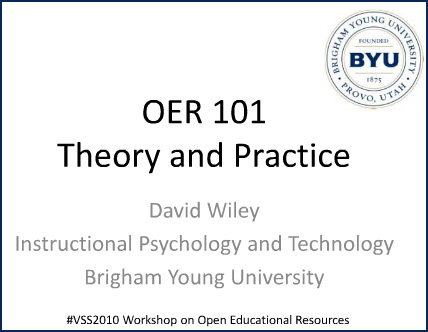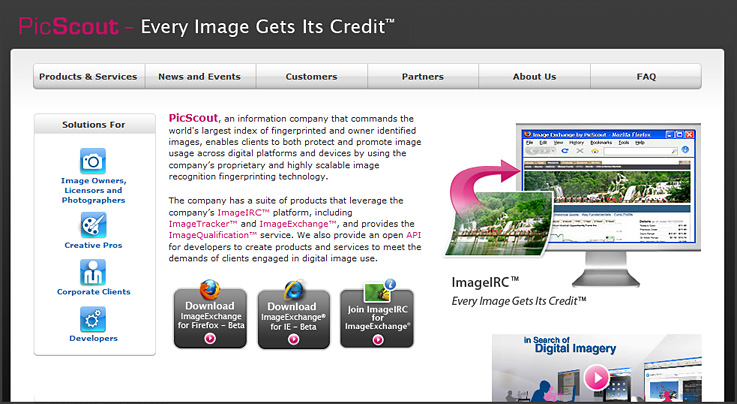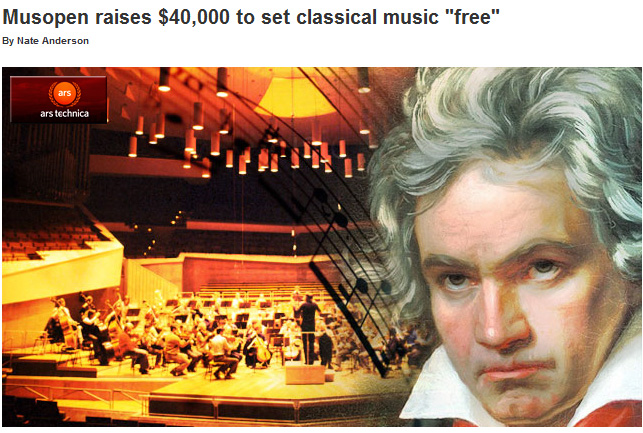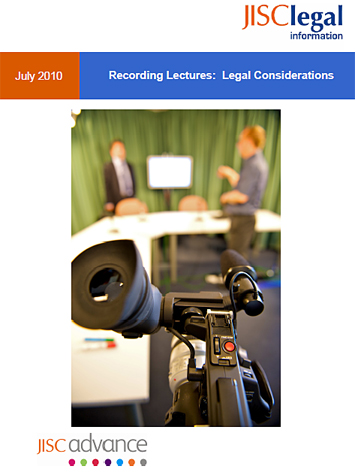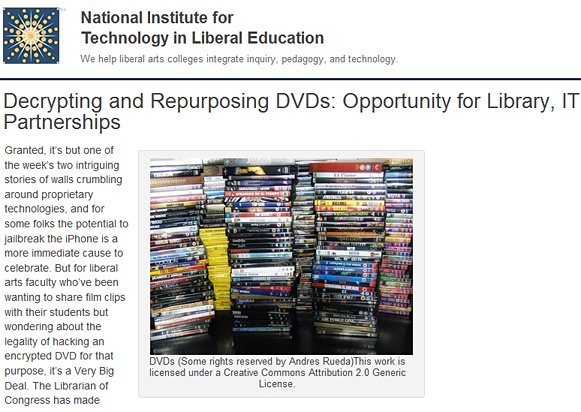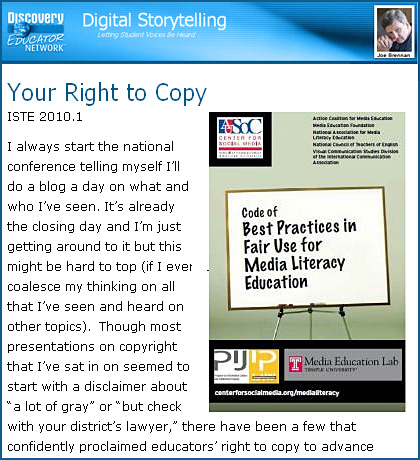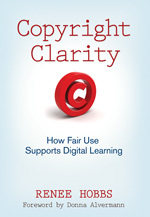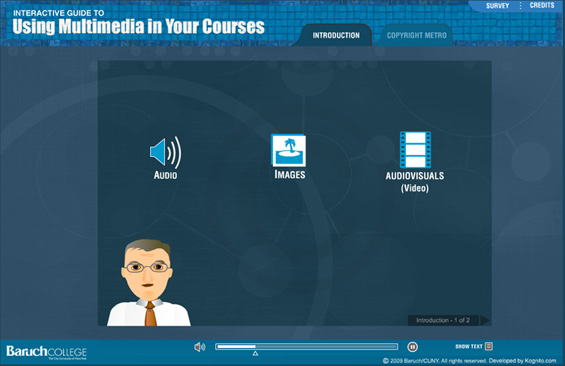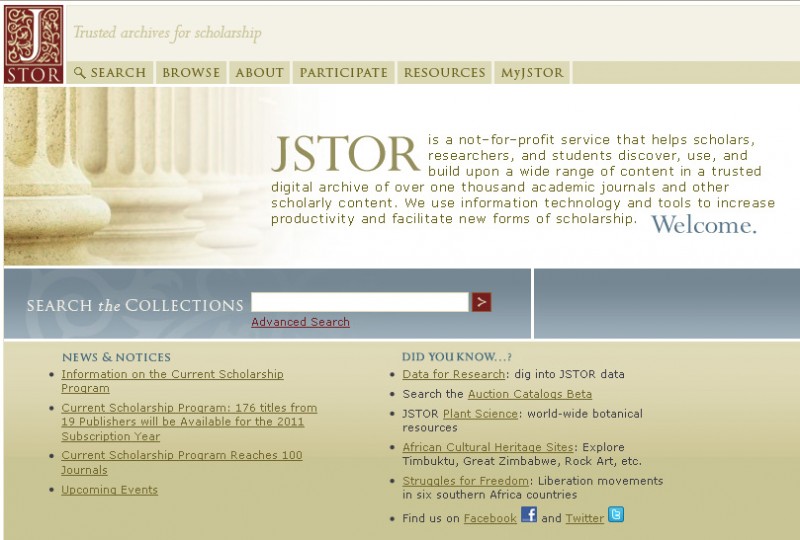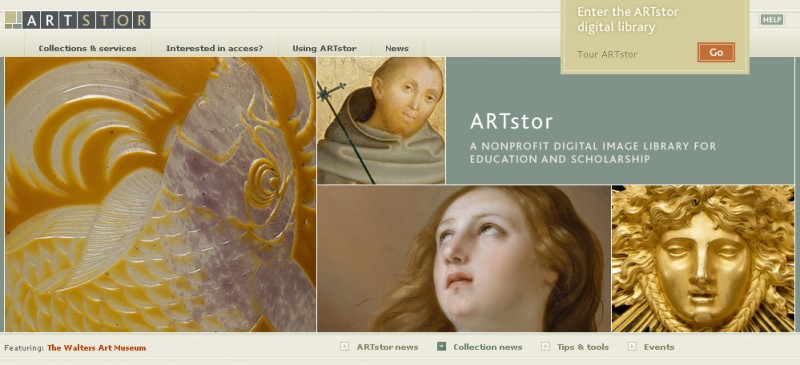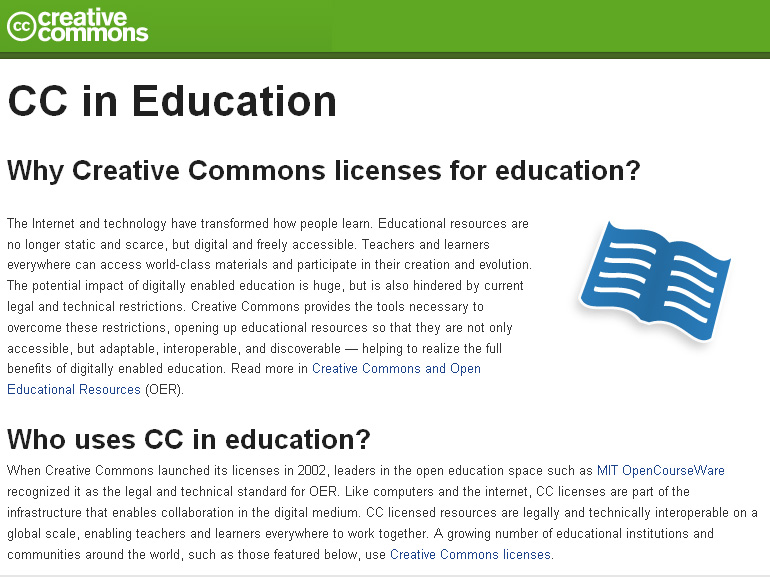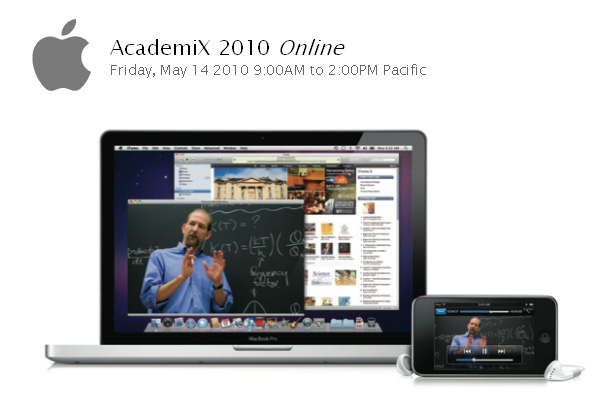Intellectual property, copyright, and harassment: Navigating the murky legal waters of online teaching — from FacultyFocus.com by Mary Bart
Free Music & Sound Effects — from JewelBeat.com
Use these free music tracks & free sound effects for any production – advertising, education, videos, photos, YouTube…etc.
These music tracks can be looped seamlessly & repeated to create a longer music track for your projects.
You only need to link to our website from yours:
“Music by JewelBeat. Download your free music and free sound effects at www.jewelbeat.com.”
Original posting from:
Background music and sound effects – Free is good — from the Screening Room
Royalty-free music: Where to find free music tracks for your video clips — from Robin Good’s Latest News by Daniele Bazzano
As you probably know, it is illegal to use copyrighted commercial music when publishing video clips online. For example, YouTube has developed a copyright-protection system that immediately detects unlicensed uses of copyrighted music tracks inside videos published online and silences them or blocks them from public viewing. So, how can you get a nice background music to place on your videos without infringing the law? The MasterNewMeda research team comes to the rescue with this guide listing all of the best services on the web to get or download open and unrestricted royalty free music.
Also see older posting:
Where can you find royalty free music
What the copyright ruling means — from InsideHigherEd.com by Tracy Mitrano
A new ruling from the United States Copyright Office that is making the rounds in higher education and blogosphere circles has a simple core meaning: fair use now applies to section 1200 of the DMCA, the anti-circumvention provision.
As far back as Princeton’s Edward Felton’s challenge to content owners from the computer science and engineering perspective and Berkeley’s Pamela Samuelson from the legal arena, this question has remained open. Early to identify the issue and its potential deleterious effects that this unanswered question had on innovation and science, these academic leaders were soon supported by William Fisher, John Palfrey and William McGreveran. In a white paper they and others at the Berkman Center published in 2006,The Digital Learning Challenge, they specifically spoke to the effects that the absence of a clear ruling on this question was having on teaching and learning: for fear of violating copyright many film instructors, professors in other areas and students restricted their use of materials they believed to be in the service of fulfilling teaching missions.
The question, essentially, was: did the breaking of encryption on a DVD for a fair use of the content violate copyright law?
The answer is now “no.”
…
Disclaimer/comment from DSC:
I have not reviewed this material carefully, but I especially appreciated this quote from Joe Brennan:
Renée Hobbs of Temple University is passionate about teachers’ rights and asserting those rights when teaching. Forget about those 10% and 30 second rules. She has even proposed teachers’ legal right to bypass the encryption on movies for the sake of education AND it’s under consideration by the U.S. copyright office! Want to know more? Check out her resources on “Fair Use supporting digital learning,” the “Code of Best Practices for Fair Use in Media Literacy Education,” and the Center for Social Media.
Daniel Christian: Some thoughts re: copyright law
Also see:
Video use and higher education: Options for the future (June 2009). Accessed from http://library.nyu.edu/about/Video_Use_in_Higher_Education.pdf
http://www.artstor.org/index.shtml
https://media.eviada.org/eviadasb/home.html
http://www.calvin.edu/~dsc8/copyright.htm
http://www.calvin.edu/~dsc8/documents/PodcastingLegalGuideCopyright.pdf
http://creativecommons.org/education?utm_source=ccorg&utm_medium=ccedu
Magner, A. (2009). Web 2.0 and copyright legal issues for universities. Accessed from http://www.slideshare.net/AaronMagner/web-20-and-copyright-legal-issues-for-universities
Cupaiuolo,C. (2010). This just in: New online curriculum on copyright law for librarians. Accessed from http://spotlight.macfound.org/blog/entry/this_just_in_new_online_curriculum_on_copyright_law_for_librarians/#When:16:59:33Z
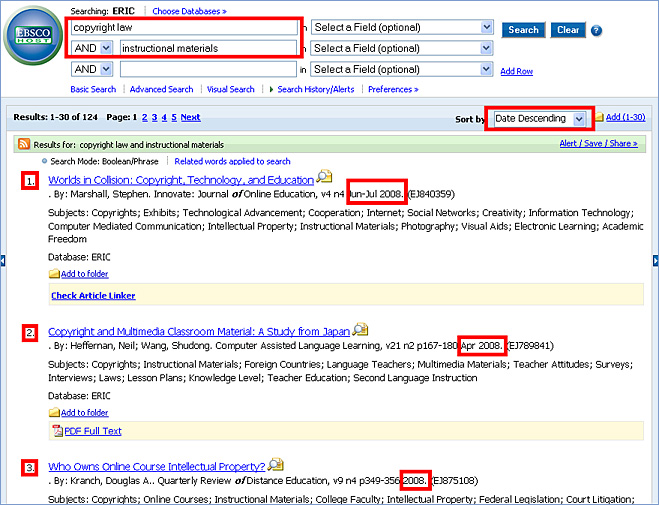
I went to go search the ERIC database just now for articles related to copyright law as it pertains to instructional materials. You know what? The most recent hit I got was from 2008! That’s unbelievable to me. It’s May 2010, and if I can’t get a scholarly article on this from 2010, we’ve got a serious problem with our academic journals. This situation is unacceptable and won’t be where students go if we can’t provide a much more up-to-date experience.
If I were to go to a lawyer about this situation, I sure hope that they would have more up-to-date materials than I currently have access to as a student.
Now I know that I could pick up many scholarly journals and look at articles from March, April, May 2010 at this point. But when did those ideas first get started? When were the articles written? When were they reviewed? When were they sent back for changes? When were they re-submitted? When did they finally make it into “print”? What’s the BEST we can do with printed journals? With online-based journals?
I’ll also grant you that I’m approaching this from somewhat of a tech-perspective — and technology always seems to outpace many other areas. But still…that all the more backs up my point here as we must move towards providing more up-to-date methods of sharing scholarly information.
Along these lines, I don’t want to read a textbook that is prior to 2009 — and ideally 2010 — at this point. In my area of work, I need up-to-date methods, techniques, information, skills.
We need more avenues that are similar to:
- JSTOR
- Artstore
- Creative Commons
Learning in an open-access world.
Join colleagues from across the country in exploring how open access is transforming learning in higher education. Apple and MacLearning.org invite you to AcademiX 2010 for a look at open access, the new teaching methods that are evolving with it, and the Apple technologies that help make it all simple. Six 20-minute talks will expose you to successful approaches, and jump-start a provocative conversation between participants and presenters.
You’ll see how leading educators are finding it easy to produce, distribute, and access academic content using Apple products and open standards. You’ll also learn how students are using Apple tools outside of the traditional lecture environment for research, collaboration, and problem solving.
Fees
The AcademiX 2010 conference is offered free of charge.
One Event, Multiple Ways to Participate
The presentations will take place simultaneously at MIT and Northwestern University, with audiences at more than a dozen other campuses joining in a live video conference. An open microphone will be available at each campus so the presenters and audiences can hear your questions or ideas. If you’d like to attend one of the in-person events, you can register at this site.
If you can’t attend in person, please register on this page to watch the live webcast and interact online with the presenters and your peers.
An integral part of AcademiX 2010 is the Conference Connect online conference system. The ConferenceConnect system is available to all AcademiX 2010 participants, whether attending at an in-person event or via the web. ConferenceConnect will provide a detailed multi-day agenda, a participant directory, participant response surveys, session-based back channel chat rooms, online evaluations, local area information, open resource links and much more. The software’s “mobile learning space” is complementary to the AcademiX conference, and is used before, during, and after the conference.
Presentations
Confirmed topics and speakers for the AcademiX 2010 conference include:
This is How We Think: Learning in Public After the Paradigm Shift
Paul Hammond, Ph.D. Director of Digital Initiatives, Dept. of English, Rutgers University
Richard Miller, Ph.D. Executive Director, Plangere Writing Center, Rutgers University
“This is How We Think” continues the line of thinking begun in Miller and Hammond’s YouTube piece, “This is How We Dream.” In a world where information abounds, where reading and research have moved from the library to the laptop, and where the act of learning itself is now making its way out of the shadows into the public eye, how must the work of education change? In this collaborative presentation, Professors Miller and Hammond will discuss their efforts to invent new media teaching practices that encourage students to engage with the most pressing problems of our time.
Commons-Based Licensing and Scholarship: The Next Layer of the Network
John Wilbanks, VP for Science at Creative Commons
Knowledge products have been generated as text for hundreds of years, and scientific and scholarly results have been locked into text-based technology since the mid 1660’s. But journal articles are a compressed version of what happened in the research. The form and function of a journal article was settled long before we could effortlessly transmit data, or incrementally store and edit vast amounts of text, or store and forward research tools in repositories. There is no reason, other than technical lock-in by the printing press, why we should think of the article as a natural unit of knowledge transmission in science. Researchers and teachers make data, text, research tools, inventions, pictures, sounds, videos, and more. But almost none of them et measured other than the article. We now have the capacity to measure the quality of a scientist across multiple dimensions, not just the article. This talk will examine the increasing importance of disaggregated, multivariate knowledge in scholarly communications, and the impacts both good and bad of the coming shift away from the journal as the core form of knowledge transmission.
Innovation and Open Access in Scholarly Journal Publishing
Jason Baird Jackson, Ph.D. Professor of Folklore and Ethnomusicology, Dept Chair, Indiana University
Drawing upon wider lessons learned while editing a toll access journal published by a scholarly society and later establishing an open access journal published in partnership with a research university library, I will describe a range of motivations underpinning the movement for building an open access scholarly communication system. Beyond characterizing the many “whys” of the open access movement, I will offer a picture of where open access journal publishing (as distinct from open access repository use) is now and where it appears to be going. Themes include the opening up of legacy journal content, the circumstances of scholarly societies as publishers, the role of libraries as publishers, author’s rights questions, tenure and promotion issues, and the impact of open access publishing for students, communities of concern, and for the careers of individual scholars.
New channels for learning: podcasting opportunities for a distance university
Ben Hawkridge, iTunes U Project Officer, Open University, UK
The Open University is a UK based international distance institution with around 200,000 students, many actively learning in online channels. The University produces rich media courses, via a structured authoring process, in which student interactions (with media; with others; and with teachers) are ‘designed in’ from scratch. In this talk I will focus on one specific new channel opportunity – institutional podcasting, and in particular the experience of the Open University on iTunes U. Our ‘best practice sharing’ project STEEPLE shows how RSS provides a powerful technical key to managing these varied new channels. However, real success lies in creating value in these channels that matches up with the new needs of the web 2.0 student!
Education for a Mobile Generation
Kurt Squire, Assoc. Professor, Edu Comm & Tech, Curriculum & Instruction, University of Wisconsin-Madison, Assoc Dir. of Edu Research and Development, Wisconsin Institutes for Discovery
For years, educators struggled with how to wire classrooms for the Internet. With the arrival of mobile media devices, soon every student will come to school with a broadband enabled, multimedia device in their pocket. How do we design educational experiences in an era in which we must assume that students can — and will — access whatever information and social network they want at a moments notice? This presentation describes the forms of participation enabled by such devices, how youth are using mobile devices such as iPhones to accelerate learning, and what a cutting-edge curriculum that leverages such devices looks like. These new approaches not only offer, but require educators to break down the walls of the classroom.
The Digital Natives Are Getting Restless: the Student Voice of the Open Access Movement
Nick Shockey, Director, Right to Research Coalition, Director of Student Advocacy, Scholarly Publishing and Academic Resources Coalition (SPARC)
Students today are digital natives. We’ve grown up in a world of unfettered access to digital information, instant gratification in the best possible sense. Yet when we need access to scholarly journals, we’re suddenly locked out. Though our education literally depends on them, we’re often cut off from journals crucial to our research, our papers, and our understanding of both details and the larger picture. However, students, in addition to numerous other stakeholders, are quickly realizing that access barriers to journals are as unnecessary as they are harmful. We’re working to reform the current academic publishing system into one that is open and equitably serves the interests of all who depend on it, not just those who can afford the often high cost of access.
Who Should Attend?
AcademiX 2010 is offered to individuals engaged in the production, distribution, and use of scholarly communications who are either employed by, or attend, institutions of Higher Education. The intended audiences are faculty, administrators, instructional technologists, developers, librarians and students.
New online curriculum on copyright law for librarians — from spotlight.macfound.org on 3/25
The Berkman Center for Internet & Society has launched Copyright for Librarians, an online, open-access curriculum on copyright law, developed in conjunction with eIFL.net (Electronic Information for Libraries).
The site aims to inform librarians about copyright law in general, as well as the aspects of copyright law that most affect libraries, especially those in developing and transition countries.
Also see:
eIFL.net’s press release
PBS Teachers Live! Webinar: “Copyright & Fair Use in the Art World and the Classroom”
Join PBS Teachers and Classroom 2.0 Wednesday, March 10 at 8 p.m. ET for “Copyright & Fair Use in the Art World and the Classroom,” with PBS producers and curriculum experts.
During this event, you will have the chance to hear from and interact with filmmaker Kembrew McLeod, whose film “Copyright Criminals” recently aired on PBS’s Independent Lens, law professor Peter Jaszi, and media producers and educators Chris Runde and Joe Fatheree. The four will discuss the implications of copyright and Fair Use laws in the classroom and share best practices in student media production. We will also be joined by Annelise Wunderlich, National Community Engagement and Education Manager for ITVS, who will present film modules and lesson plans based on the film and developed by ITVS Community Classroom.
To join the webinar, click the link –> Online at Elluminate Live!
Please note:
If you are having problems with the above link, please cut and paste the link below into your browser bar:
https://sas.elluminate.com/m.jnlp?sid=2008350&password=M.8F821313A796D6BF881CE659E65849
Note: You will need to install the latest version of the Adobe Flash player to view video for this presentation.
Save the Date: Our next PBS Teachers LIVE Webinar will be Tuesday, March 16 at 8 pm ET featuring Dr. Mae Jemison (first African American woman to enter space) and the producers of PBS’ new series, SciGirls.









